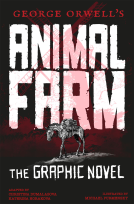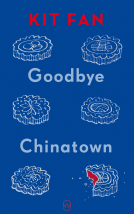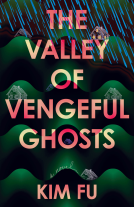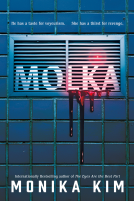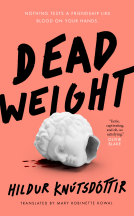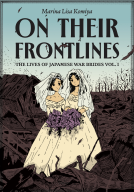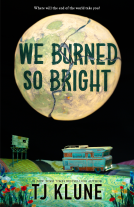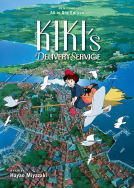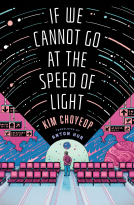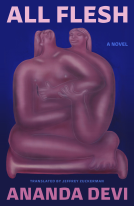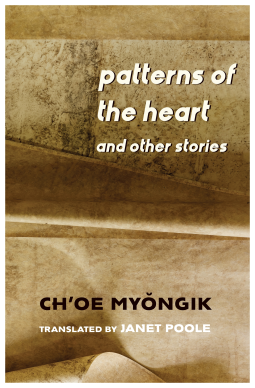
Patterns of the Heart and Other Stories
by Ch’oe Myŏngik
This title was previously available on NetGalley and is now archived.
Send NetGalley books directly to your Kindle or Kindle app
1
To read on a Kindle or Kindle app, please add kindle@netgalley.com as an approved email address to receive files in your Amazon account. Click here for step-by-step instructions.
2
Also find your Kindle email address within your Amazon account, and enter it here.
Pub Date Apr 09 2024 | Archive Date Jul 17 2024
Talking about this book? Use #ColumbiaUP #NetGalley. More hashtag tips!
Description
Patterns of the Heart and Other Stories presents a selection of Ch’oe’s short fiction in translation, including later works from hard-to-find North Korean publications. These cinematic, keenly observed tales explore Pyongyang in meticulous detail, depicting the city’s transformations and the conflicts between old and new. They pay close attention to the lives of the disaffected and the marginalized: a drifter confronts a former revolutionary dying of opium addiction; a sex worker is trafficked across the border aboard a train, amid the indifference of her fellow passengers. Later stories provide a striking glimpse of the Korean War—the occupation of Pyongyang, U.S. fighter jets bombing civilian refugees, guerrilla heroics—from a North Korean perspective. Hidden treasures of world literature, these stories offer new perspectives on Korea’s turbulent twentieth century, across political divides still in place today.
Advance Praise
"This collection’s publication is a major event [. . .] While any historian interested in a glimpse of Korean life would benefit from reading these stories, treating them as mere documentation undervalues Ch’oe’s literary talents. His spare, lean style and ability to capture deep pathos are as evocative as Hemingway and feel strikingly contemporary."
—Kirkus Reviews, *Starred Review*
Available Editions
| EDITION | Other Format |
| ISBN | 9780231202718 |
| PRICE | $27.00 (USD) |
| PAGES | 304 |
Available on NetGalley
Average rating from 9 members
Featured Reviews
 Reviewer 1230144
Reviewer 1230144
Patterns of the Heart is an often bleak yet invaluable collection of 8 short stories by Korean author Ch’oe Myongik.
Stories are ordered according to publication dates beginning in 1936 and ending in 1952.
The short story for which the book is named, “Patterns of the Heart,” concerns the demise of a once revered revolutionary hero and his current dismal daily existence as a heroin addict.
As the translator writes in the introduction, it could be said “ to signal that the revolutionary spirit, while violently suppressed, did not die but lived on in the shadows.” This story, however, is about so much more than the revolutionary turned addict and the chaotic wartime climate. Themes include how times and people change, lost hope, resignation and defeat and the sometimes inherent tragedy of love and love lost. The author was gifted at illustrating both the subtleties and complexities of human nature.
A few of the other stories that stood out to me include: “The Engineer,” “Young Kwon Tonsu” and the closing story “Voices of the Ancestral Land. “ This final wartime piece is incredibly moving in its portrayal of the destruction and terror experienced by those who were forced the flee their homes to escape mission-bombing from the front lines.
All in all, this collection of stories provides an insightful introduction by the translator and sheds a rare light on daily life in Korea during the Japanese occupation and into the Korean War era.
l was not expecting to stumble upon such a great collection. As Janet Poole writes in the introduction, “Ch’oe Myongik garnered a reputation as an exquisite architect of the short story form,” and thankfully it can now be shared with us in this English translation.
 Paul F, Reviewer
Paul F, Reviewer
"The awful news of the typhoid epidemic died down after a while. There was no flood, and the tedious rainy season began to look as if it might end soon. Even when Pyŏngil was caught in a late rainstorm he did not seek shelter under any eaves. He wanted strangers on the roadside to remain strangers on the roadside forever. And he walked that road planning from then on to devote himself to his books"
Patterns of the Heart and Other Stories is a translation by Janet Poole of a series of stories by North Korean writer 최명익 (Ch’oe Myŏngik) born in 1903 - 8 stories in all over 270 pages, together with a illuminating introduction to the author and his works from Poole.
The stories offer a fascinating insight into the 1936-1951 period in which they were published, with three very distinct periods:
- 5, published in 1936-1941 set in the pre-Pacific War, colonial occupation period, with Pyongyang on the Busan-Seoul-Pyeongyang-Harbin path;
- 1 published in 1947, which covers the early-1945 to 1947 period, and captures both the collapse of colonial rule, at first gradual then sudden with the news of the unconditional surrender, and then the early, optimistic, days of the new regime in the North and land reform;
- 3 published in 1951-2, focused on the aftermath of the Korean war, in particular the devastation wrought by the American troops when the counterattacked into the North.
But these are also highly worthwhile in purely literary terms, the pre-war stories in particular with a strong influence from the very "unwholesome sounding fin-de-siècle titles" such as the works of Dostoevsky, Baudelaire and Nietzsche, which one character in the dying days of the Japanese empire is criticised for reading:
"Such books were not exactly banned, but their unwholesome sounding fin-de-siècle titles had aroused the thugs, who appeared to have confiscated the books on the suspicion that they were somehow acting as camouflage for something else, given their distance from the urgency of the current situation."
And the importance of literature runs as a thread through much of the collection:
"Occasionally, he would enter a bookstore on these wanderings. This was the one habit that still remained from his student days. But now this habit was drenched in nostalgic sentiment. He was no longer searching for a vital book, given that any structured research and plan for reading had long since evaporated. He would absentmindedly cast his eyes over the books leaning aslant on the tall, wide bookshelves, and he would gaze at their covers: the classic Ming-style type and the new sensibility of cursive writing, which looked as if the ink had only just dried. A vague glance at a newly released collection of writing from someone he had once loved and respected would evoke a sensation of remembrance, like the body warmth of a woman who had once captivated him. Occasionally he would pull out a newly published book by an author whose name he recalled from something he had read in the past and peruse the table of contents, only to discover a missing link far too gaping to allow for any connection with the book. He would return the book tidily to its place and gaze up at the bookshelf in frustration, as if he faced a wall he could not break through no matter how many times he threw his own bloated body against it. And yet, when he took a step back and looked up at the bookshelf again, he could also feel a sense of joy and majesty, as if he were gazing upon the pyramids or the grandeur of the Great Wall."
Recommended
Readers who liked this book also liked:
Jakub Politzer (Illustrator), Christina Dumalasova (adapter), Katerina Horakova (adapter)
Comics, Graphic Novels, Manga, General Fiction (Adult)
Studio Ghibli Library
Arts & Photography, Comics, Graphic Novels, Manga
Created by Hayao Miyazaki
Comics, Graphic Novels, Manga, Sci Fi & Fantasy


